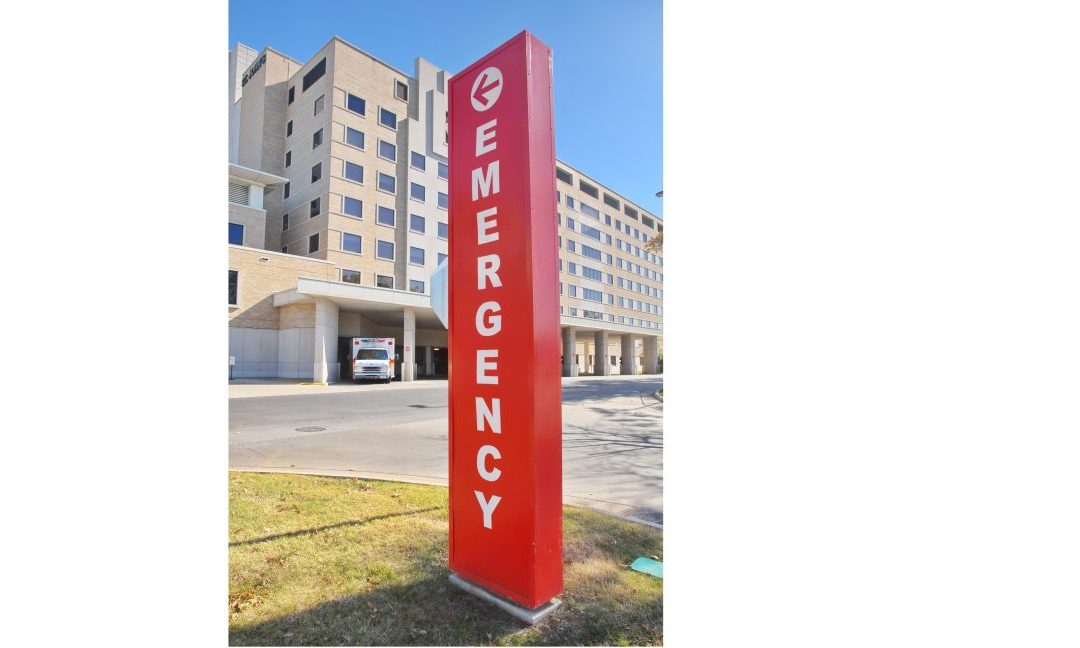MONTPELIER – Arrests by law enforcement may become a more common sight in Vermont’s emergency departments. Owing to a change in law, police can arrest and remove hospital patients or visitors for certain misdemeanors without a warrant even if an officer was not present to witness it.
Advocates who opposed the change cited fears that it would serve to criminalize mental health crises. That led legislators to shrink the scope of the bill, which originally applied to all healthcare settings.
The bill was also narrowed to ensure that no patient could be arrested and removed from the hospital if they had not been evaluated yet, were not in stable condition, or were waiting for an inpatient admission.
Zachary Hughes, the vice president of the board at Vermont Psychiatric Survivors, voiced opposition to increasing the number of arrests in hospitals. “I think a citation is maybe less traumatic than an arrest,” he observed. “You may be deterring people from the hospital.”
Hughes encouraged legislators to consider ways of calming emergency room patients before violence occurs.
“I think there are times when you can involve the peer population, who can provide support while the person is in waiting mode, depending on how acute the situation is,” he said.
In order to make an arrest without first obtaining a warrant from a judge, police must have “probable cause” to believe that a crime has taken place.
On this basis, an officer can arrest a felony suspect even without witnessing the incident directly, but in the case of a misdemeanor, an officer arriving after the incident occurred, can only take the accused party into custody if the alleged offense appears on a list of 17 crimes in current law. The bill added three more to protect healthcare workers in hospitals and for emergency service responders, targeting assaults, threats, and disorderly conduct in those settings.
Before voting in favor of the bill, the House Committee on Judiciary added a requirement that the Vermont Program for Quality in Health Care compile a report examining how adequate training and sufficient staffing levels, among other possible improvements that would not involve police, may support safer hospitals. The legislature will receive it next January.
The Vermont Association of Hospitals and Health Systems pushed for the bill. Nurses, doctors, and paramedics appeared before the legislature to describe what they said was an increasingly dangerous working environment, particularly in understaffed emergency departments, and a sense of having little recourse for burnout-inducing harms endured on the job.
“I have never once in my 20 years thought about leaving emergency medicine,” said Jill Maynard, a nursing director at Southwestern Vermont Medical Center. “However, over the past 12 months, I ponder leaving the ED and, on the most difficult days, leaving the professional together.
Recalling incidents of spitting, hair-pulling, sexual harassment, and death threats, Maynard reported that she’d been “made to feel guilty for calling the police” or had been told that “the patient had a mental health diagnosis – therefore, they would not be held responsible for their actions.”
Alison Davis, a medical director at Rutland Regional Hospital, shared a secondhand account: “One night, a female staff member had a urinal thrown at her and was then punched in the side of the head by a patient. That patient remained in the ED that night, awaiting bed placement, but the following day was reported by staff to be bragging about ‘hitting that broad’ and asking staff, ‘This is Vermont: what are they going to do?’”
Representatives from the Vermont Department of Public Safety expressed concerns, especially from the standpoint of legal liability, about the possibility of interrupting crucial care at hospitals. “If we’re talking about a person who’s brought to a hospital, there’s typically a reason why,” said DPS Deputy Commissioner Daniel Batsie.
“They’re having a psychiatric breakdown, they’re having a medical condition, they’re having something that has brought them there for evaluation or treatment.”
Colonel Matt Birmingham of the Vermont State Police conjectured that such an arrestee would likely return to the same hospital after their arraignment.
“I would find it to be challenging, if not impossible, for a judge to impose conditions of release that they’re not allowed to go to an emergency room,” Birmingham said, “because that’s probably illegal.”
Jack McCullough from Vermont Legal Aid’s Mental Health Law Project doubted whether the bill would make healthcare workers safer.
“While superficially appealing, nothing in this bill provides an opportunity to interrupt, cease or prevent a crime when it is happening – everything in this bill is about responding to a criminal act after it has occurred,” he said.
Washington County Mental Health Services Executive Director Mary Moulton testified about the need for “upstream services” that would reduce burdens on emergency departments.
Speaking as an advocate, Rep. Anne Donahue criticized committee discussions for the “degree of the focus on mental health” despite reports of increases in violent behavior among Americans irrespective of any psychiatric diagnosis.
She said that the bill “could end up being a highly disproportionately used tool, driven in part by implicit bias” against psychiatric patients.
Sen. Dick Sears, who introduced the bill, stressed during the Senate hearings what he saw as an imperative to give officers a stronger signal to intervene in attacks upon healthcare workers.
The Vermont Rules of Criminal Procedure similarly single out “assault against a family member, or against a household member” among the misdemeanors for which officers can make immediate arrests without seeing them firsthand. “The goal was to put together legislation that would mirror what we do with domestic violence right now,” Sears said.

